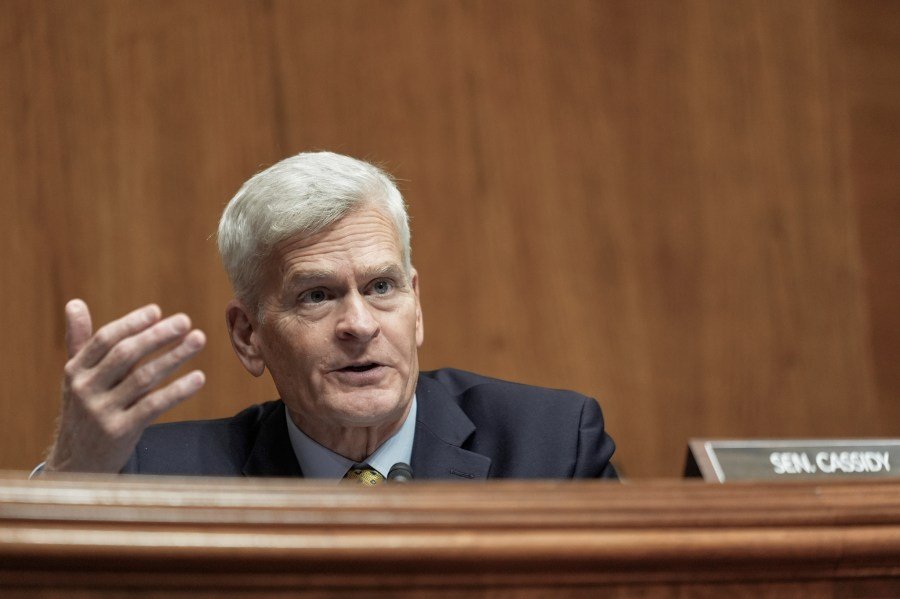Title: Update on EEOC Leadership and Transgender Worker Rights in Washington D.C. (2025)
WASHINTON, D.C. — In a recent confirmation hearing, the acting chair of the Equal Employment Opportunity Commission (EEOC), Andrea Lucas, recognized that civil rights laws include protections for transgender workers. However, she stood by her decision to retract lawsuits aimed at advocating for these rights, citing the need for her agency to adhere to directives from the Trump administration.
Lucas, appointed to the EEOC in 2020 and elevated to chair earlier this year, is currently seeking Senate approval for an extended five-year term. During her hearing before the Senate Committee on Health, Education, Labor, and Pensions, she faced scrutiny over her leadership style, particularly from Democratic senators who argued that she has compromised the independence traditionally held by the EEOC. This criticism intensified following President Trump’s dismissal of two Democratic EEOC commissioners, raising concerns about the agency’s autonomy.
The hearing featured significant political tension, with Republican senators expressing support for Lucas, particularly regarding her rollback of regulations established during the Biden administration concerning gender identity rights. Lucas argued that these previous guidelines exceeded the EEOC’s authority.
“I am committed to dismantling identity politics that burden our civil rights laws,” Lucas asserted. She emphasized her intention to follow the administration’s agenda, highlighting the reforms initiated under Trump.
Issues arose when Sen. Patty Murray, a Democrat from Washington, questioned Lucas about the decision to dismiss seven gender discrimination lawsuits, including a notable case from California. Lucas confirmed that these dismissals were influenced by Trump’s executive orders, which define biological sex strictly as male and female.
Further complicating the discussion, Lucas acknowledged a key Supreme Court ruling from 2020 that affirmed protections against discrimination based on transgender status. However, she remained non-committal when pressed about how the EEOC plans to address future complaints from transgender individuals, particularly in light of a reported directive deeming gender identity-related cases as low priority.
Indiana Republican Sen. Jim Banks welcomed the agency’s shift, framing it as a return to fundamental beliefs regarding sex representation. Lucas reiterated her stance, stating, “There are men and there are women. Full stop,” criticizing the previously established protections against workplace harassment based on gender identity as politically motivated.
As the only federal body authorized to investigate discrimination in private employment, the EEOC received over 88,000 discrimination claims in fiscal year 2024. Created by the Civil Rights Act of 1964, its commissioners are presidential appointees tasked with ensuring compliance with discrimination laws.
Democrats in the Senate pointed out the potential ramifications of Trump-era dismissals of agency leaders, asserting that this politicization undermines the EEOC’s historical independence.
Sen. Andy Kim raised concerns about potential conflicts between presidential directives and the agency’s responsibility to uphold workers’ rights. He warned against the dangers of allowing political influence to dictate legal actions.
In a climate of heightened political division surrounding workers’ rights, Lucas aims to prioritize proclamations regarding workplace diversity and inclusion, as well as protecting women’s rights in same-sex spaces and addressing workplace biases against Christians.
Ultimately, Lucas expressed support for Trump’s civil rights vision, claiming, “The American people should be delighted about the progress being made."
This report corrects previous statements regarding the 2020 Supreme Court ruling, clarifying that active enforcement against discrimination based on transgender status has been legally established.
The Associated Press provides comprehensive coverage of women’s roles in the workforce, supported by Pivotal Ventures. For further details on encounters with philanthropic influences and standards, visit AP.org.

